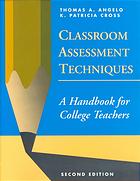Getting students to come to class prepared can be a challenge but is important for making class time productive. A few specific strategies can help!
Communicate Your Expectations about Preparation
- Start with the syllabus. One of the common causes of under-preparation for class is that students are unsure of your expectations. Clearly stating your expectations in class and on your syllabus is the first step. The next step is providing students with tips on how to study for your course. For study strategies and resources, see Tips on Helping Students Make the Most of Study Time.
- Assess preparation early. On the first day of class, inform students that during the next class meeting there will be an activity (such as a quiz, an informal assessment measure, or group activity) dependent on completion of an assignment. This should help them get into a routine of being prepared for class.
- Avoid reading for your students. If students believe you will cover what was important in the reading during lecture, then they have no reason to do the reading themselves. Make it clear that class time will be used to work with and not review the material.
Give Students Guidance on Reading Assignments
- Provide students with reading or study questions in advance of reading assignments. These will help students focus their attention on what is most important. Other possibilities would be to ask students to record their thoughts and reactions to assignments, write potential test questions over assigned reading material, or think about how something they read could be applied to their own lives.
- Give students tasks to accomplish as they read. Give students an empty or partially completed outline or matrix to complete. Have students take notes on “survival cards,” or 3x5 cards that they turn in to you on the day the reading assignment is due. Return the cards for use on the day of a quiz or exam. Ask students to write potential test questions based on the reading. Have students compose a summary (or abstract) and/or reflection of the reading that highlights how the reading expands upon what they have learned.
Make the Relevance of Assignments Explicit
- Stress the importance of preparation. If assignments do not seem relevant to the class, students will quickly decide that preparation is not essential. Deliberately state how an assignment relates to material, what skills they will be practicing, what knowledge they will gain, and/or how it will help them in the discipline.
- Relate assignments to students’ interests and experiences. Include students in planning and choosing appropriate and interesting assignments,
Assess Students’ Preparation for Class
- Continue to assess student frequently. At the beginning of class, give students a quiz, group assignment, or discussion question that is dependent on them having prepared for class. Incorporate Classroom Assessment Techniques to assess student preparation and current understanding.
References
Angelo, T. A. & Cross K. P. (1993). Classroom assessment techniques (2nd ed.). San Francisco: Jossey-Bass.
Brookfield, S. D. (2006). The skillful teacher: On technique, trust, and responsiveness in the classroom. (2nd ed.). San Francisco: Jossey-Bass.
Davis, B. D. (2009). Tools for teaching. (2nd ed.).San Francisco: Jossey-Bass.
Svinicki, M. & McKeachie, W. J. (2010). McKeachie's teaching tips : Strategies, research, and theory for college and university teachers. (13th ed.). Belmont, CA: Wadsworth.
Weimer, M. (2010). 11 Strategies for Getting Students to Read What’s Assigned.
Authored by Terri Tarr (July, 2001)
Revised by Sarah Lang (August, 2011)




